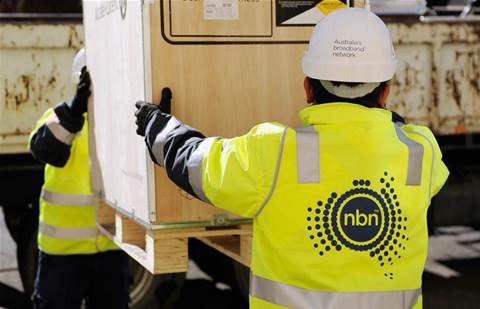Telecommunications technicians hired by NBN Co as contractors have detailed their working conditions in a submission to a parliamentary committee, raising concerns about compensation, workplace safety, among others.
The Communications, Electrical and Plumbing Union of Australia (CEPU), one of the unions that counts NBN technicians among its members, made the submission to the parliamentary select committee on job security, with members contributing and also facing the committee.
This comes following a work stoppage the CEPU organised in May protesting the same issues. A separate KPMG-led audit will also explore the allegations.
The submission alleges that NBN Co and its delivery partners have been cutting costs without considering safety, security and service delivery; increased complexity of jobs due to the multi-technology mix; insufficient rates of pay; increased costs for sub-contractors; inappropriate and unethical contracting practices; inequitable distribution of work; and a lack of oversight and responsibility by the NBN Co itself.
“When I started working on the NBN in 2010, it was a decent income. Now it’s not even a living wage,” a CEPU member said in the submission.
The CEPU said members have reported declining real incomes and worsening working conditions, alleging that the NBN Co’s sub-contractor model has become “significantly compromised” over recent years.
“It is evident from the reports received from CEPU members that the shift to a cheaper model for the NBN, with a mix of different technologies and an increased amount of remediation work to be done on deteriorating copper and other older infrastructure, has resulted in poorer outcomes for workers on the project,” the submission read.
“At the same time, a government focus on the ‘on budget’ costs of the NBN, and the management imperative to reduce those costs in order to meet shareholder expectations, has arguably resulted in NBN Co turning a blind eye to unethical and illegal practices used by delivery partners to keep sub-contracting costs down.”
The initial NBN rollout originally involved connecting fibre to portals inside the premises, but since after the network provider changed to a multi-technology mix, the CEPU said technicians are now required to also repair degraded copper wires or remediate HFC cabling, among others.
Technicians also had to be qualified in the many NBN technologies, including fibre to the premises (FTTP), fibre to the curb (FTTC), fibre to the building (FTTB) and fibre to the node (FTTN) installations and maintenance. There were also instances where repairs were unable to be completed in the allotted time due to unforeseen faults or degradation of obsolete technologies.
“These scenarios result in delays to the end-user and a further reduction to the sub-contractor’s potential for earnings,” the submission read.
The union also said some of its members had been engaged through “sham” contracting arrangements with delivery partners, alleging they had been seeking to limit labour force costs to maximise profits from NBN Co contracts.
NBN Co also allegedly failed to update job pay rates with the cost of living, with some rates staying at the same level from the original contracts from 2010, when the company made “significant” changes to the network design. Some have also reported getting less money.
“Some of the most insecure work in this country is undertaken by skilled and qualified NBN communications technicians, undertaking critical work on essential public infrastructure, which is funded and managed by the Australian Government,” the submission read.
“Rather than delivering on the original promise of the National Broadband Network to create secure, fairly-paid publicly funded jobs for skilled technicians and tradespeople, the NBN project has created a monopsony employer that operates at arm’s length from its workforce, resulting in workplace practices that often fall foul of Australia’s industrial relations laws, and routinely skirt around their edges.
“We urge the committee to recommend to the Senate that contracting arrangements within Government Business Enterprises be subject to urgent review, to ensure that workers engaged in public works receive the pay, entitlements and job security that the Australian community expects.”


.png&h=128&w=207&c=1&s=1)

.png&h=142&w=230&c=1&s=1)

_(21).jpg&h=142&w=230&c=1&s=1)
_(27).jpg&h=142&w=230&c=1&s=1)





.jpg&w=100&c=1&s=0)











